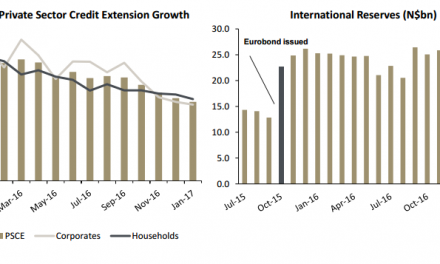
GDP down by 2.6% in second quarter of 2019

Weak performances in the mining, agriculture, wholesale and retail sectors kept the domestic economy subdued, with Gross Domestic Product (GDP) contracting by 2.6% in the second quarter of 2019 compared to the 0.6% growth seen during the same period of 2018, the Namibia Statistics Agency announced Thursday.
Year-on-year, real GDP for the second quarter of 2019 stood at approximately N$25.5 billion, compared to N$26.2 billion, showing the sum of real value added for sectors which shrunk by N$670 million.
Statistician General, Alex Shimuafeni said that despite an accommodative monetary policy that has kept the repo rate low at 6.75% and an inflation rate of 4.2% remaining within the targetted band of 3% to 6%, more than half of the major sectors posted declines in real value added.
“The significant reduction in economic activities is attributed to continued austerity measures by government, weak domestic demand for goods and services, reduced disposable income coupled with drought affecting most households,” Shimuafeni stressed.
According to Shimuafeni, mining and quarrying recorded a contraction of -20.2%, while the agriculture and forestry sector recorded -28.1%, largely due to the persistent drought. The wholesale and retail sector declined by -2% while hotels and restaurants recorded a decline of -2.8%. Other moderate declines were recorded in public administration and defence, transport and communications, education, and health sectors.
However, there are sectors which posted positive growth during the quarter under review. The manufacturing sector saw a growth of 18.8%, while electricity and water sectors also grew by 2.7%.
“During the period under review, macroeconomic aggregates such as inflation surged up, recording a 4.2% compared to 3.8% in 2018. This represents an increase of 0.4% and is largely due to increases in food and non-alcoholic beverages as well as alcoholic beverages and tobacco,” Shimuafeni said.
Meanwhile, the quarter also saw a faster rise in imports, recording N$19.687 million whereas exports decelerated to N$13.288 million, widening the trade balance by N$6.366 million.
“This is largely due to the increase in importation of fuel and reduction in export of diamonds,” Shimuafeni said.











































